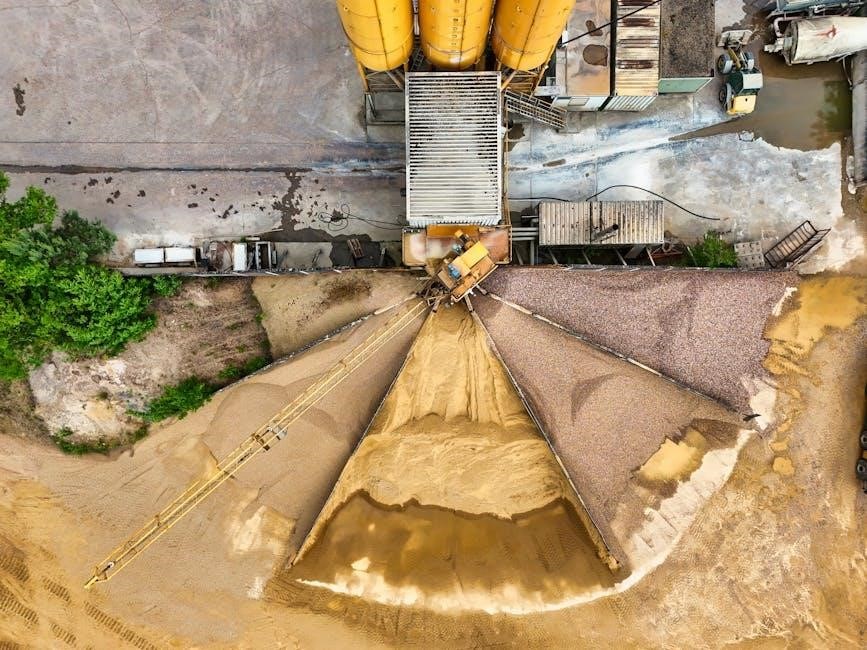stephen crane poems pdf
Download Stephen Crane's poems in PDF format for free. Explore his iconic poetry collection, including "The Red Badge of Courage" and more.
Stephen Crane was a renowned American poet, novelist, and journalist, celebrated for his innovative style and profound exploration of human nature. His poetry, often concise yet powerful, examines themes of war, spirituality, and societal conflict, offering a unique perspective on the human condition. Crane’s work, though initially underappreciated, has become a cornerstone of American literature, with his poems like “Do Not Weep, Maiden, for War Is Kind” showcasing his mastery of imagery and moral inquiry. His writings continue to inspire scholars and readers alike, cementing his legacy as a literary pioneer.
1.1. Biographical Overview of Stephen Crane
Stephen Crane, born on November 1, 1871, in Newark, New Jersey, was the youngest of fourteen children in a devout Methodist family. He grew up in Port Jervis, New York, and studied at Syracuse University before pursuing writing and journalism. Crane’s career was marked by his bold reporting and literary innovation, witnessing events like the Spanish-American War. His life was cut short when he died on June 5, 1900, in Badenweiler, Germany, at just 28 years old.
1.2. Importance of Crane’s Poetry in American Literature
Stephen Crane’s poetry holds a significant place in American literature for its innovative style and exploration of universal themes. His work, often overlooked in his lifetime, gained recognition for its raw realism and emotional depth. Crane’s poems, like “Do Not Weep, Maiden, for War Is Kind,” critiques societal norms and offers profound moral reflections, making him a pivotal figure in American literary history.

Key Themes in Stephen Crane’s Poetry
Stephen Crane’s poetry explores themes of human struggle, moral ambiguity, and existential inquiry, reflecting his realist perspective on life’s harsh realities and the search for meaning.
2.1. War and Its Impact on Humanity
Stephen Crane’s poetry vividly portrays war’s brutality and its psychological toll on individuals. His works, like “The Red Badge of Courage”, offer an unromanticized view of conflict, exploring themes of fear, courage, and the dehumanizing effects of battle. Crane’s realistic depictions emphasize the emotional and moral struggles of soldiers, highlighting war’s profound impact on humanity.
2.2. Nature and Its Role in Human Existence
Stephen Crane’s poetry often depicts nature as a force beyond human control, symbolizing both beauty and indifference. His works explore how nature reflects human struggles, with themes of existential questioning and the search for meaning in a vast, often harsh world.
2.3. Spirituality and Moral Struggles
Stephen Crane’s poetry often explores spirituality and moral struggles, reflecting existential themes. His works question the universe’s indifference, challenging readers to confront life’s complexities. Poems like “A Man Said to the Universe” highlight cosmic insignificance and moral inquiry, showcasing Crane’s unique narrative voice and philosophical depth in addressing human spirituality.
2.4. The Struggle Between Individual and Society
Stephen Crane’s poetry vividly portrays the tension between individual identity and societal expectations. His works often depict individuals grappling with external pressures, highlighting themes of isolation and rebellion. Crane’s exploration of this conflict, as seen in poems like “Do Not Weep, Maiden, for War Is Kind,” underscores the human struggle for autonomy in a rigid world.

Poetic Style and Structure
Stephen Crane’s poetic style is notable for its vivid imagery and symbolic depth. His unique narrative voice and experimentation with form and rhythm set him apart, blending realism with lyrical precision.
3.1. Use of Imagery and Symbolism

Stephen Crane’s poetry is rich in vivid imagery and symbolism, often using natural elements to reflect deeper themes. His imagery evokes strong emotional responses, while symbols convey moral and existential questions, enhancing the complexity of his narratives and making his work timeless and thought-provoking in American literature.
3.2. Crane’s Unique Narrative Voice
Stephen Crane’s poetry is distinguished by its distinctive narrative voice, often resembling a parable or moral tale. His voice blends realism with poetic depth, creating a unique tone that engages readers while exploring complex themes. This narrative style adds emotional and philosophical layers to his work, making it both accessible and profound.
3.3. Experimentation with Form and Rhythm
Stephen Crane’s poetry often defies traditional forms, embracing a unique rhythm and structure. He experimented with free verse and unconventional patterns, creating a dynamic interplay between form and meaning. Crane’s innovative approach to rhythm and form added emotional depth to his work, reflecting his modernist tendencies and influencing future poetic movements.

Famous Poems by Stephen Crane
Stephen Crane’s notable poems include “Do Not Weep, Maiden, for War Is Kind” and “A Man Said to the Universe,” showcasing his unique style and themes. These works are widely available in PDF collections, offering readers easy access to his poetic genius and profound insights into human existence.
4.1. “Do Not Weep, Maiden, for War Is Kind”
This poem, a stark critique of war’s brutality, contrasts romantic notions of conflict with its harsh realities. Crane’s vivid imagery and biting irony explore themes of sacrifice and morality. Available in PDF collections, it remains a powerful example of his literary genius and continues to resonate with readers today.
4.2. “A Man Said to the Universe”
This brief yet profound poem explores existential themes, as a man asserts his significance to an indifferent universe. Crane’s concise language and philosophical depth make it a standout piece. Available in PDF collections of his works, it remains a striking example of his ability to provoke thought through minimalistic expression.
4.3. “The Red Badge of Courage” (Poetic Elements)
While primarily a novel, The Red Badge of Courage exhibits poetic elements like vivid imagery and symbolism. Crane’s depiction of war through the cherry tree and the sun symbolizes the clash of innocence and reality. The text’s emotional depth and rhythmic prose highlight its literary artistry, making it a rich study in poetic narrative techniques.
Historical Context of Crane’s Poetry
Stephen Crane’s poetry emerged during the late 19th century, influenced by the American Civil War’s aftermath and the rise of literary realism. His journalistic experiences shaped his gritty, realistic style, reflecting the societal shifts and human struggles of his time, offering a unique lens on war and existence.
5.1. Influence of the American Civil War
The American Civil War profoundly shaped Stephen Crane’s poetry, as seen in his vivid depictions of combat and human endurance. Although he was born after the war, its aftermath and societal impact influenced his exploration of morality, survival, and the psychological toll of conflict, reflecting the era’s lingering tensions and complexities.
5.2. The Rise of Realism in Literature

Stephen Crane’s poetry emerged during the rise of Realism, a literary movement emphasizing accurate, unromantic portrayals of life. His works, like “The Red Badge of Courage,” reflect this shift, offering gritty, detailed depictions of war and human emotion, aligning with Realism’s focus on authenticity and the everyday, setting him apart from romanticized narratives.
5.3. Crane’s Experience as a Journalist
Stephen Crane’s career as a journalist deeply influenced his poetry, providing rich material and a keen observational eye. His reporting on war and human struggle shaped his realistic style, enabling him to capture raw emotions and harsh truths with precision. This experience lent authenticity to his poetic themes of conflict and human resilience.
The Legacy of Stephen Crane’s Poetry
Stephen Crane’s poetry left a lasting impact on American literature, influencing modern poets with its raw honesty and innovative style. His work remains a timeless reflection of human struggle and resilience, ensuring his legacy endures in literary circles and scholarly studies.
6.1. Revival of Interest in the 20th Century
The 20th century saw a renewed appreciation for Stephen Crane’s poetry, as critics recognized its modernist elements and psychological depth. His unique style, blending realism with symbolic imagery, resonated with scholars, leading to a resurgence of academic interest and solidifying his influence on contemporary literature and poetic expression.
6.2. Influence on Modern Poetry
Stephen Crane’s poetry has significantly influenced modern poets through its innovative use of imagery, symbolism, and narrative voice. His exploration of moral and existential themes continues to inspire contemporary writers, fostering a deeper engagement with the human condition and encouraging experimentation in poetic form and expression.
6.3. Critical Reception and Scholarly Analysis
Stephen Crane’s poetry has garnered significant scholarly attention for its innovative style and profound exploration of themes such as war, morality, and existential crises. Critics praise his unique narrative voice and symbolic imagery, while scholars continue to analyze his work for its cultural and literary significance in American poetry.

Accessing Stephen Crane’s Poetry in PDF Format
Stephen Crane’s poems are widely available in PDF format, with popular collections and reliable sources offering free and legal downloads for easy access and study.
7.1. Popular PDF Collections of Crane’s Poems
Popular PDF collections of Stephen Crane’s poems include “The Complete Poems of Stephen Crane” and “The Poetry of Stephen Crane,” offering comprehensive access to his works. These collections are widely available online, featuring all 118 poems, and are downloadable from reputable sources, ensuring easy access for readers and scholars alike.
7.2. Reliable Sources for Downloading
Reliable sources for downloading Stephen Crane’s poems in PDF include Google Books, Project Gutenberg, and archive;org. These platforms provide free, legal access to his works, ensuring high-quality downloads. They are trusted by scholars and readers for their authenticity and convenience, making them ideal for accessing Crane’s poetry.
7.3. Legal and Free Resources
Accessing Stephen Crane’s poetry in PDF is easy through legal and free resources like Project Gutenberg, Google Books, and ManyBooks. These platforms offer high-quality, downloadable versions of his works without subscription fees, ensuring readers can explore his poetry legally and conveniently while respecting copyright laws and supporting literary preservation.

Study Guides and Analysis
Study guides and analysis of Stephen Crane’s poetry are available in PDF format, offering in-depth insights into his works. These resources provide critical perspectives, thematic breakdowns, and essay topics, aiding students and scholars in understanding his literary contributions and stylistic nuances effectively and comprehensively.
8.1. Interpretation of Major Poems
Stephen Crane’s major poems, such as “Do Not Weep, Maiden, for War Is Kind,” are rich in imagery and symbolism, offering profound insights into themes like war and spirituality. PDF study guides provide detailed interpretations, analyzing poetic devices and themes, helping readers unpack the complexity and depth of Crane’s literary masterpieces effectively.
8.2. Themes and Motifs in Depth
Stephen Crane’s poetry delves into themes of war, spirituality, and societal conflict, with motifs like nature and moral struggle. His poems explore human resilience and existential questions, often using vivid imagery to convey emotional depth. These elements create a rich tapestry for analyzing the complexities of his literary vision and philosophical insights.
8.3. Essay Topics and Discussion Points
Possible essay topics include analyzing Crane’s use of imagery and symbolism, exploring his narrative voice, and discussing the role of nature in his work. Other points could cover his experimentation with form, the influence of journalism on his poetry, and the societal vs. individual struggle themes, fostering deep analytical discussions.

The Relevance of Crane’s Poetry Today
Stephen Crane’s poetry remains relevant today for its exploration of universal human struggles, nature’s role in existence, and moral questioning, inspiring contemporary writers and educators.
9.1. Universal Themes in Modern Context
Stephen Crane’s poetry resonates today through its exploration of universal themes like war, nature, and human morality. His vivid imagery and emotional depth continue to inspire contemporary writers and educators, offering timeless insights into the human condition. Crane’s work remains a vital resource for understanding existential struggles and societal challenges.
9.2. Educational Use in Literature Classes
Stephen Crane’s poems are widely used in literature classes for their accessibility and depth. His exploration of universal themes, such as war and morality, resonates with students. Crane’s concise yet evocative style makes his work ideal for teaching poetic devices, imagery, and critical analysis, fostering engagement with complex literary concepts.
9.3. Inspiration for Contemporary Writers
Stephen Crane’s innovative style and exploration of universal themes continue to inspire contemporary writers. His vivid imagery, moral complexity, and unique narrative voice offer a timeless model for crafting compelling poetry. Crane’s work encourages writers to experiment with form and delve into profound human experiences, making him a lasting influence in modern literature.
Stephen Crane’s poetry remains a testament to his literary genius, offering profound insights into humanity, nature, and morality. His works continue to captivate readers, ensuring his enduring legacy in American literature.
10.1. Final Thoughts on Crane’s Poetry

Stephen Crane’s poetry is a masterful blend of vivid imagery and philosophical depth, offering timeless reflections on war, nature, and human struggle. His unique voice and innovative style continue to resonate, making his work essential reading for both scholars and poetry enthusiasts. Crane’s legacy endures as a pioneer of American literature.
10.2. Encouragement to Explore His Work
Stephen Crane’s poetry offers profound insights into the human experience, with themes that remain universally relevant. Exploring his work, especially through accessible PDF collections, invites readers to immerse themselves in his vivid imagery and moral complexity. His poetry is a timeless invitation to reflect on war, nature, and the human condition.
References and Further Reading
Explore recommended books like “The Poetry of Stephen Crane” by Daniel Hoffman and reliable online resources for PDF downloads of his works, ensuring authentic literary exploration.
11.1. Recommended Books and Articles
Key resources include “The Poetry of Stephen Crane” by Daniel Hoffman, offering deep analysis, and “Stephen Crane: A Study in American Letters” by Thomas Beer. Additionally, scholarly articles in journals like PMLA provide critical insights, while “The Complete Poems of Stephen Crane” serves as an essential primary text for comprehensive study.
11.2; Online Resources and Academic Papers
Reputable websites like JSTOR and Google Scholar offer extensive collections of academic papers on Crane’s poetry. PDFs of his works are accessible through platforms like Project Gutenberg and academic libraries. These resources provide in-depth analysis and critical perspectives, aiding scholars and enthusiasts in exploring Crane’s literary contributions effectively and ethically.

